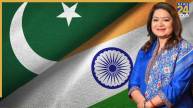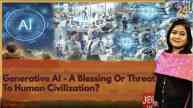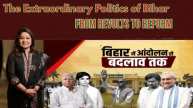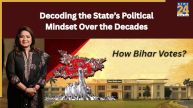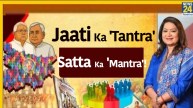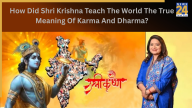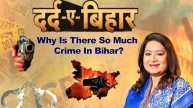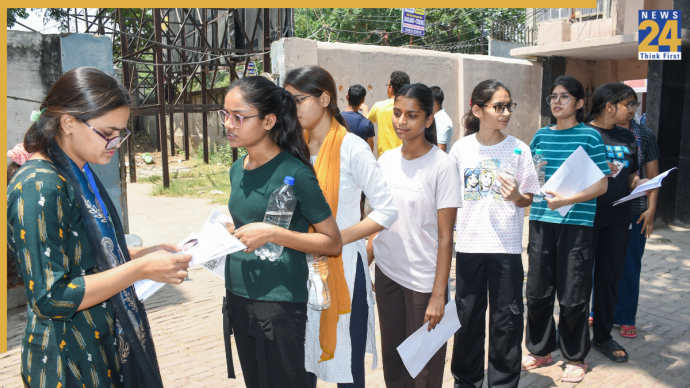– Anurradha Prasad
(CMD and Editor-in-Chief, News24)
Internet and social media have impacted all our lives. Facebook, X, Instagram and several other social platforms have touched our lives. But have you ever wondered what Mahatma Gandhi would have done in this age?
We all today try and find friends on social media. This is making all of us sick, especially kids. We have no real friends and we try to find them virtually. Children are finding comfort in smartphones rather than playing with friends. Is this an ideal situation for you?
Research suggests that kids spend four to five hours on social media on average. I wonder if Mahatma Gandhi would have also had an account on Facebook and Twitter in the times we live in.
Youth are spending time on reels and shorts so much that it has now reached a level of addiction. This addiction is creating gaps in family bonding. Members of the family don’t communicate with each other when they are nearby. That time is spent on their smartphones.
People look up to their friends on social media but they are going away from their actual family or near and dear ones. It isn’t a healthy situation for a society where family bonds come first.
Here are some disturbing findings of new research on the matter.
1. 42% of kids under 12 on average spent two to three hours daily on smartphones.
2. 74% of kids spent time on YouTube
3. 61% of kids above 12 years spent considerable time on online gaming and related activities
Screen Addiction Challenge
During the COVID-19 pandemic, online learning became the norm, leading children to establish a daily connection with smartphones and tablets. However, even as the situation returns to normal and offline classes resume, children seem to be captivated by screens. Breaking their habit of spending excessive time on screens has become a significant challenge for most parents. In recent years, the usage of social media in India has witnessed a substantial increase.
In 2015, only 19.1% of the total population were social media users. This number increased to 23% in 2016, followed by 29.5% the next year, 35.4% in 2018, 46.4% in 2019, 50.4% in 2020, 54.6% in 2021, and it is estimated to surpass 58.3% in 2022. This year, it is anticipated to reach a significant milestone of 61.7%.
Social Media Isolating Individuals Even In A Crowd
The way people are continuously trying to connect with each other through social media, they are wasting hours of their daily lives. Consequently, they are struggling to find time to nurture their very close relationships. In this enchanting and illusory virtual world, genuine relationships are growing weaker.
In the frenzy of connecting relationships in the virtual world, the tendency for people to share their joys and sorrows with each other has weakened. The scope for dialogue within families has become limited. People seem to be attempting to find solutions to their problems exclusively in the virtual realm. As a result, the culture of human empathy, social responsibility, and collaborative problem-solving has grown weaker, while the inclination towards superficiality has become stronger.
Psychologists believe that smartphones and social media are increasingly isolating individuals even within a crowd. At present, smartphones, the internet, and social media are indeed essential for staying connected with the world. Consequently, distancing oneself from technology while trying to engage with the world appears nearly impossible. However, excessive use of these technologies is proving to be detrimental, not only to personal relationships but also to one’s health.
Social Media: Keeping People Connected or Disconnected?
Whenever technology advances, it brings both benefits and drawbacks. Smartphones, for instance, have made life more convenient, granting access to news and information at our fingertips. However, it’s also true that these devices are increasingly demanding our time, posing challenges to our personal connections.
Within households, communication has weakened as people get engrossed in their virtual worlds. In smaller families where both parents work or are often away for employment, children find their closest companions in smartphones, connecting them to the entire world. Based on personal preferences, they are learning new languages, cultures, and values. Children who have become habitual users of the virtual world have even found heroes, friends, and guides within it.
For the development of their personalities, children seem to be more influenced by the virtual world than by their parents, grandparents, or neighbours. According to some research, social media’s most significant impact is on children’s sleep patterns, affecting their confidence, as well as their eating and drinking habits. In essence, children’s mental health is significantly impacted due to reduced outdoor activities and prolonged screen time. This is becoming a global issue.
How Social Media Is Affecting Children’s Mental Health?
People across the globe are witnessing changes in the behaviour of children active on social media. Schools are increasingly concerned that social media is slowing down the pace of children’s mental development. Excessive engagement on social media is being associated with symptoms such as anxiety, depression, and eating disorders among children. It is also impacting their academic performance. Moreover, the overuse of social media is making children susceptible to cyberbullying.
The addiction to connect with the virtual world via smartphones, tablets, and laptops has led children to find more joy indoors than in outdoor sports activities. In families where both parents are working, children are forced to spend most of their time alone at home. For such kids, the influence of smartphones on their language, behaviour, and cultural development is quite pronounced. Most children engrossed in the virtual world seem to seek answers to their questions more from smartphones than from their parents.
According to a report, 73% of children in India use mobile phones, and among the 30% who use smartphones excessively, a significant portion suffers from mental illnesses. In other words, 3 out of every 10 children are grappling with depression, anxiety, and irritability. A similar study in the United Kingdom has also revealed that excessive use of social media is adversely affecting children’s cognitive abilities and behaviour.
If Gandhi Were Alive Today…
However, during challenging times such as the COVID pandemic, the need for social media became inevitable as it played a vital role in rapidly disseminating information from one location to another. Facebook, Twitter and Instagram became a medium to quickly convey messages to people in positions of power, thus bridging the gap between the masses and those in authority. We have seen many people seeking help on Twitter and Facebook and several people including politicians, police officers extended a helping hand.
Now, the question arises: How would Mahatma Gandhi view social media if he were alive today? Would he use platforms like Facebook, Twitter, or Instagram? To find an answer to this question, one must understand the early 20th century, a time when industrialization was sweeping across the world. Back then, it was widely believed that the British Empire would never fall. However, during that era, Mahatma Gandhi identified the dangers of industrialization and, in his 1909 book ‘Hind Swaraj’, provided a remarkable model for global progress. In ‘Hind Swaraj’, Gandhi advocated for the use of the charkha (spinning wheel) instead of heavy machinery to fulfil the needs of countries like India. The charkha, in itself, was an ingenious invention. In essence, Gandhi, given the circumstances of his time, was an advocate for machines and technology.
Gandhi was one of the world’s greatest leaders, and he connected with people more deeply and relied heavily on dialogue. In this context, it can be surmised that Gandhi would likely use social media to further awareness and promote mutual assistance among people. However, he would also emphasize the importance of drawing a line to prevent excessive indulgence in social media, which can lead to constant bickering and discord in society.
Mahatma Gandhi believed in connecting people with one another, in forging relationships. His efforts were aimed at bringing people together, it was evident from the fact that about 120 years ago, he launched the newspaper “Indian Opinion.” This newspaper was published in multiple languages, including Hindi, English, Gujarati, and Tamil, symbolizing Gandhi’s commitment to connecting with people. In today’s context, we have entered the era of social media, and it is likely that if Gandhi were alive today, he would have utilized social media platforms to bridge the gap and foster better communication in society.
Mahatma Gandhi used to write letters and respond to the ones he received. Imagine if he had access to today’s technology, with the ability to instantly reach the entire world through social media, email, and WhatsApp. He could have accomplished his mission in a matter of years rather than decades. Gandhi would have undoubtedly cautioned people about the extensive use of social media. He would have encouraged individuals to connect with one another on a personal level, to understand each other’s joys and sorrows deeply.
Mahatma Gandhi was certainly open to the use of modern technology, but he was not in favour of technology dominating human relationships. If Gandhi were alive today, he might have taken an oath with children that, without the right to vote, he would not use social media. He could have appealed to people not to post, like, or forward any false or misleading information on social media. Gandhi might have discussed the potentially harmful effects of excessive use of social media on society and encouraged limited use.
Gandhi’s approach might have included urging people to observe digital fasting for a day or two each week and to connect with the people around them. He would have recognized how social media has the potential to isolate family members within their own homes and would have advised families to designate spaces where members could meet without smartphones, fostering face-to-face conversations.
Mahatma Gandhi had a profound understanding of Indian society. He knew well that religion could not be separated from Indians. Therefore, Gandhi placed humanism and humanity at the centre of his nationalism. While he identified himself as a Sanatani Hindu, he did not merely pay lip service to this label. He adopted the teachings of the Bhagavad Gita, emphasizing the importance of karma (action) in nation-building, rather than resorting to violence and war. Gandhi’s philosophy transcended religious boundaries and aimed to unite people of all backgrounds. He promoted the idea of unity and communal harmony. Gandhi’s interpretation of religion was not confined to rituals but focused on inner spirituality and adhering to principles of love, truth, and non-violence. He envisioned a society where people coexisted peacefully and lived in harmony with nature.
Mahatma Gandhi might have addressed the challenges posed by social media in a way that technology wouldn’t overly burden human relationships. He could have played a role in using technology to strengthen social bonds rather than confining people within the limitations of 6-inch screens.



